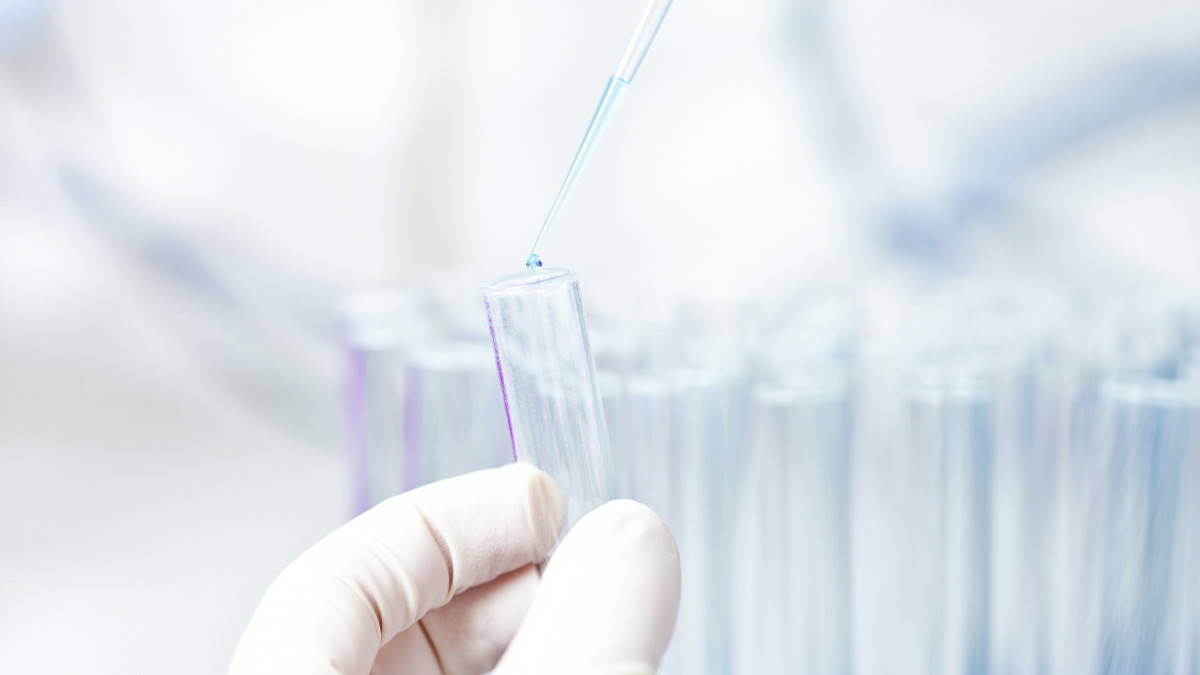Creso Pharma Q&A: Halucenex Life Sciences acquisition

Medical marijuana company Creso Pharma (ASX:CPH) has today announced it has entered the emerging $100 billion global market for psychedelic medicine with acquisition of Canada-based Halucenex Life Sciences. (Image: Getty)
Medical marijuana company Creso Pharma (ASX:CPH) has today announced it has entered the emerging $100 billion global market for psychedelic medicine with acquisition of Canada-based Halucenex Life Sciences.
Creso Pharma’s acquisition of Halucenex Life Sciences marks the first fully-owned psychedelic medicines company on the ASX.
The following Q&A provides shareholders and investors with further background on its recent acquisition.
What is Halucenex?
Halucenex is an established life sciences development company focused on researching, developing and licencing novel psychedelic molecules for the global pharmaceutical and nutraceutical markets. Halucenex is currently progressing clinical trials to research the efficacy of psilocybin used in psychedelic-assisted psychotherapy (PAP) to treat and alleviate Treatment Resistant Depression and other mental illnesses.
What is Psychedelic-Assisted Psychotherapy (PAP)?
Psychedelic-assisted psychotherapy refers to therapeutic practices that involve the ingestion of a psychedelic drug.
What is psilocybin?
Psilocybin is the active chemical found in magic mushrooms, which has been shown to have considerable benefits for mental health patients. It is very scarce and commands high prices.
How does Halucenex guarantee supply of psilocybin?
The growing demand for medical-grade psilocybin to conduct research and clinical trials and the lack of steady, consistent supply chains has lead to a supply shortage globally. In anticipation of further shortages in product availability, Halucenex has signed a supply agreement with one of Canada’s pharmaceutical grade psychedelics manufacturers, Psygen Industries Inc., securing supply of 11.6g (11,600mg) of synthetic psilocybin for immediate use in upcoming clinical trials.
This agreement makes Halucenex one of only approximately 11 companies to secure supply from Psygen, and provides the company with one of the largest supplies of synthetic psilocybin in Canada and significantly de-risks future endeavours.
Synthetic psilocybin is preferred over naturally sourced psilocybin in a clinical setting, as naturally sourced psilocybin is known to have greater inconsistency of potency and therefore dosage. Health Canada therefore approves clinical trials only if companies have access to synthetic psilocybin to ensure consistency of dosage and purity in formulations.
Where is Halucenex based?
Halucenex is based in Canada. It operates at 6,000 sq. ft. medical treatment facility in Nova Scotia, located next to the Hants Emergency Hospital, with a Controlled Substances laboratory, and 18 treatment rooms dedicated to providing psychedelic-assisted psychotherapy.
What is Halucenex’s core business and strategy?
Halucenex is rapidly becoming a fully vertically integrated provider of psilocybin and psychedelic-assisted psychotherapy treatments through a three-tiered strategy.
Halucenex will initially focus on the development of a proprietary synthetic psilocybin formulation to de-risk supply and increase yields for future micro and macro dosing formulations, as well as open the manufacturing vertical.
It will also conduct research into interactions between synthetic psilocybin and natural psychedelic psilocybin mushrooms. This will include cultivation and extraction of multiple psychedelic derivatives with testing to develop intellectual property.
Halucenex is also aiming to become a clinical drug provider of psychedelic-assisted psychotherapy. It has a defined clinical trial schedule and binding supply agreements, which will accelerate a path to commercialisation.
What is the market potential for PAP as an alternative treatment route?
The emerging global market for psychedelic medicines is estimated to be worth over US$100Bn[i]. As well as the market generally, Halucenex is targeting the high growth verticals of mental illness and Post Traumatic Stress Disorder (PTSD).
The COVID-19 pandemic has accelerated the urgent need for effective mental health treatments, with lockdowns leading to a significant increase in mental health diagnosis[ii]. Currently, there are an estimated 264 million people affected by depression globally[iii] and is expected that one in four people will be affected by mental or neurological disorders at some point in their lives[iv].
Increases in traumatic events globally have contributed to the rise of PTSD[v] and it is estimated that the market for therapeutics to treat the condition will grow to over C10.5Bn by 2025[vi].
Recent studies have shown that psychedelic molecules can be used in PAP to treat mental health illnesses such as:
What are some of the problems with current treatments for mental health and PTSD?
The available treatments for mental health have limited effectiveness and many side effects. Presently, many offerings use a combination of skilled therapists, support groups and medication. There is limited, timely access to these resources in a matter coinciding with patient treatment needs.
Regularly, patients can only access one of these therapies, which lead to a less than satisfactory outcome. This applies for patients with drug-resistant conditions and highlights the pathway for PAP as a new alternative treatment
What is the current regulatory landscape for psychedelic-assisted psychotherapy?
The regulatory landscape for PAP is rapidly shifting and becoming more favourable for Halucenex.
In North America, there have been considerable regulatory developments, which signal a growing acceptance of PAP. These include:
- A designation from the US Food and Drug Administration (“FDA”) in 2019 and 2020 for 2 companies for psilocybin-assisted psychotherapy as a ‘breakthrough therapy’ for Major Depression and Treastment Resistent Depression
- The Canadian Health Minister granting a growing number of people with terminal cancer access to psilocybin mushrooms through a one time exemption to Canada’s Controlled Drugs and Substances Act
- The US FDA granting expanded access to MDMA for PSTD patient treatment trials
- Washington DC decriminalising the possession and cultivation of psychedelic plants and fungi
- Oregon, USA legalising psilocybin for the mental health treatment of adults in supervised settings
In Canada, most psychedelics are categorized as Schedule 3 controlled substances. This includes ayahuasca, psilocybin, and LSD. MDMA and ketamine are listed under Schedule 1. The Canadian authority, Health Canada, grants exemptions to companies looking to use psychedelics for a medical or scientific purpose in the form of a Controlled Drugs and Substances License.
Other countries where using psychedelics is legal for either recreational or medicinal purposes include:
- Brazil
- Jamaica
- The Netherlands
Halucencex is confident that there will be a continued shift in the regulatory environment, which will underpin growth for the company.
Why did Creso decide to acquire Halucenex?
The acquisition provides Creso Pharma with direct access to the emerging psychedelics medicines market. Creso Pharma believes that the acquisition will allow it to bypass significant barriers to entry into the market, positioning it with an early-mover advantage to bring products to market. The acquisition also marks the beginning of the evolution of the Company from cannabis cultivator, extractor and medicines provider, to integrated natural medicines provider to improve people’s mental health and wellbeing.
What are the expected synergies from the combined operations?
The combined group of Creso Pharma and Halucenex provides a number of synergies and growth opportunities.
Creso Pharma expects to fast track Halucenex’s growth through its established global distribution network and partners in the pharmaceuticals space and providing access to the Company’s cutting-edge cannabis cultivation facility in Canada, which can be readily adapted to the cultivation of magic mushrooms. Halucenex will also be able to leverage off the expertise of Creso Pharma’s leading management team, which has significant experience in clinical trials, pharmaceutical product development, and go-to-market know-how.
Together, both parties will be positioned at the forefront of innovation in the psychedelic medicines sector.
This article was developed in collaboration with Creso Pharma, a Stockhead advertiser at the time of publishing.
This article does not constitute financial product advice. You should consider obtaining independent advice before making any financial decisions.
Related Topics
UNLOCK INSIGHTS
Discover the untold stories of emerging ASX stocks.
Daily news and expert analysis, it's free to subscribe.
By proceeding, you confirm you understand that we handle personal information in accordance with our Privacy Policy.








